Google has settled on the specs of its first Android-powered smartwatch, and could be preparing to launch it in June… around the same time rumors suggest Apple might announce the iWatch.
These Are The Specs Of Google’s iWatch Competitor
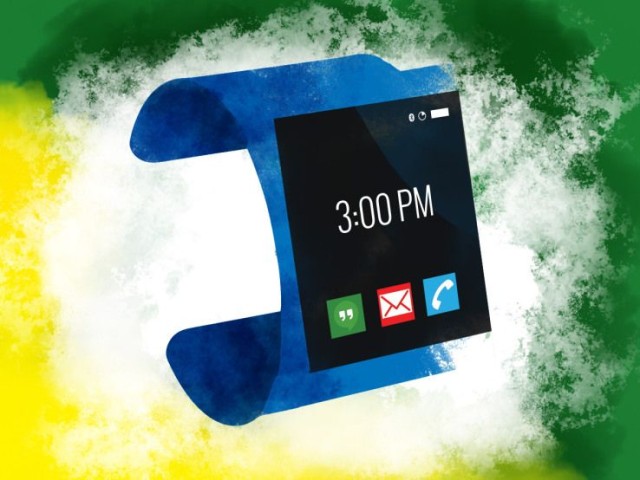

Google has settled on the specs of its first Android-powered smartwatch, and could be preparing to launch it in June… around the same time rumors suggest Apple might announce the iWatch.

For the first time since it was introduced nine years ago, the cost of Amazon Prime is going up. According to Amazon, existing Prime members will pay $99 per year on their annual renewal date, while Amazon Student members will now pay $49.
The Prime Fresh membership fee will remain unchanged at $299.
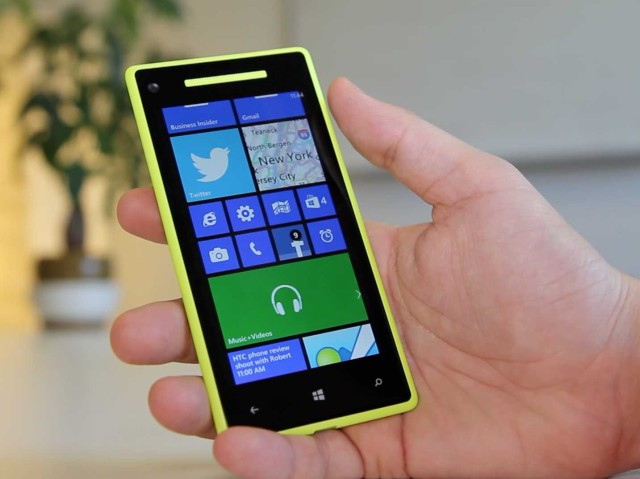
Microsoft has reportedly made its Windows Phone operating system free to select handset manufacturers in an effort to gain ground on Android and iOS.
Both Xolo and Karbonn — two smartphone makers based in India — recently signed deals with Microsoft that will allow them to launch Windows Phone devices free from license fees, according to sources speaking to The Times of India.
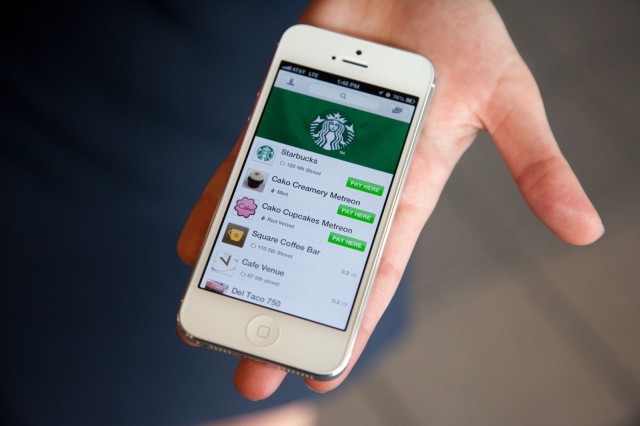
Starbucks has confirmed that it will be revamping its mobile app to add digital tipping and a new user interface later this month. The update will also bring a new “shake to pay” feature that will provide quick and easy access to your Starbucks Card barcode.

Apple wants Samsung to pay a $40 license fee for every smartphone and tablet it sells after the South Korean company infringed five patents with a number of Galaxy-branded devices.
That’s right… just five patents, $40 for every device. It’s a pretty surprising demand — especially after Apple recently stated that monetary damages were “not an adequate remedy” for Samsung’s patent infringing ways.

Three new security phones have come into the spotlight recently: The Geeksphone Blackphone, the Boeing Black, and FreedomPop’s Privacy phone.
These phones take similar routes to security, from what we know so far. They’re loaded with encryption, security apps and other features.
But there are two feature on at least one of these phones that should be a standard part of Android.
The $629 Geeksphone Blackphone, made in partnership with Silent Circle, uses a forked version of Android called the PrivatOS. First, the system confronts you with choices when you install an app, enabling you to choose exactly what personal information is available to each app — individual permissions on each source of data that each app requests. And second, after apps have been installed, a “Security Center” lets users enable or disable specific permissions for each app.
Why aren’t these two features built into standard Android?

Warner Bros. Interactive Entertainment and DC Entertainment have just disclosed that mobile superhero fighting game Injustice: Gods Among Us has gotten a big bad exclusively to the Android and iOS versions of the game: Darkseid.
To celebrate, the game will have a special challenge event taking place in game, giving you a chance to compete in battles that will reward you with an exclusive Gold character card. The challenge will run from March 6 through the 24th.
![The Perplexing Plinth Is The Only Tablet Stand You’ll Ever Need [Hands On] post-268581-image-3173a3aa2ae06055921f72cb2d637f54-jpg](https://www.cultofmac.com/wp-content/uploads/2014/03/post-268581-image-3173a3aa2ae06055921f72cb2d637f54.jpg)
The Plinth isn’t just a super-compact tablet stand — it’s an amusing party trick.
Slide the sleek accessory out of your pocket or purse and into the hands of a friend and you’ll likely be met with a quizzical stare as they try to figure out what, exactly, the flat plastic object is. Thin, feather-light and somewhat curiously shaped, the Plinth — which currently exists only as a 3-D prototype, although if you’re quick you can get in on the Kickstarter campaign — looks something like a Chinese puzzle box or a Transformer in stealth mode.
It’s obviously composed of multiple parts that fit together seamlessly, and a couple of buttons look like they might do something. But let a friend fondle the plastic object, and they’ll likely fiddle with it for a while before they discover the Plinth’s awesome secret.
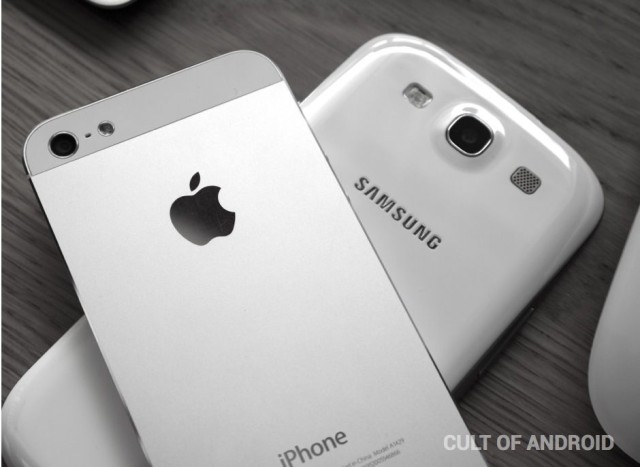
Apple has today had its request for a permanent injunction on Samsung’s patent-infringing products denied. The Cupertino company was awarded $929 million in damages, but it argued that the monetary sum was insufficient, and that a number of Samsung products should be banned.

Twitch, the hugely popular video streaming service for gamers, today announced a new SDK that will allow Android and iOS developers to integrate Twitch into their games. It will give users the ability to broadcast, capture, and archive their gaming sessions on their smartphones and tablets.
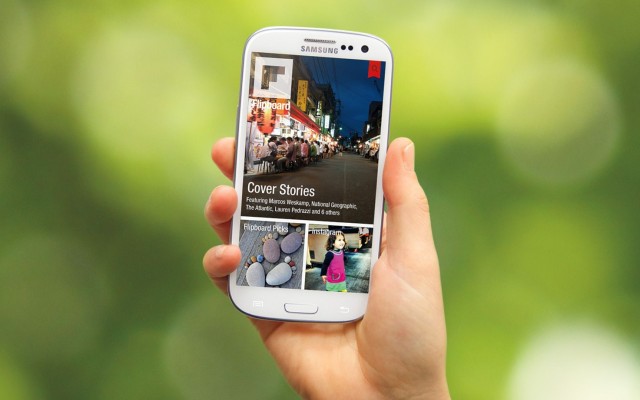
Flipboard has today confirmed its acquisition of rival news reader Zite from CNN. The company plans to integrate Zite’s technology into its existing service, while Zite as we know it will be killed off.
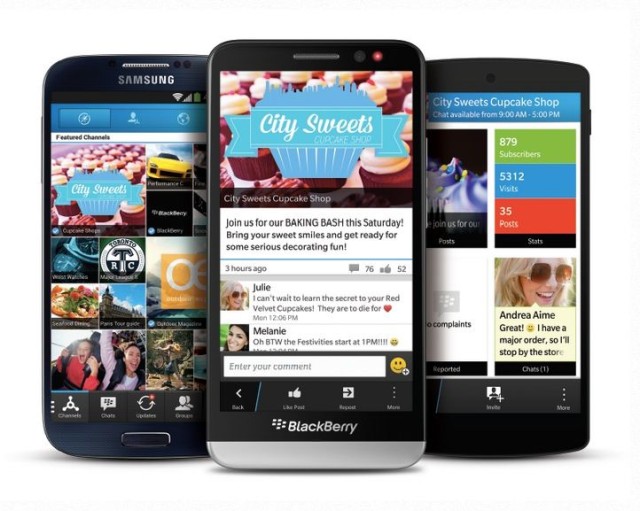
BlackBerry has confirmed that sponsored content will soon be coming to BBM Channels after ads were spotted in its latest BBM beta release. The Canadian company also insists, however, that it will not be inserting advertisements into your instant messages, and that it will be “very strict” about the amount of content that is pushed to the BBM community.

Kickstarter, the crowdfunding platform for creative projects, hit a major milestone today, when it officially racked up $1 billion in pledges.
According to the company’s statistics page, its $1 billion in total funds represents $859 million backing successful projects — with the $1 billion total referring to all projects, including those that are still in progress, or else which failed to reach their funding goal.
To date, there have been 57,121 successful Kickstarter projects — earning the company just under $43 million in the 5% cut that it takes of all successful projects.

A dark cloud hangs over the future of mobile communication: the spectre of Facebook controlling it all.
It’s not likely, actually. But Facebook’s intention to purchase WhatsApp for $16 billion or $19 billion dollars (depending on whether you factor in the stock-based bonuses for WhatsApp employees) involved some scary-big numbers.
The biggest of these numbers happens when you add Facebook’s current user count plus WhatsApp’s projected user count (how many users Facebook believes the service will have if current growth rates continue). The number is: 2.3 billion users.
Of course, the number is pure B.S.
WhatsApp’s current growth probably won’t continue. Facebook’s current numbers are padded with duplicate users, fake users and non-active users. And there’s always going to be big overlap between WhatsApp and Facebook users — a dude who uses both is still just one dude.
Still, when I ponder the number of people likely to be using Facebook-owned services (WhatsApp and Facebook Messenger) for messaging compared to those using Google-owned Hangouts, I find myself astonished and confused. How did this happen? And what can be done about it?
![Smartphones Stole The Show Again At MWC, But Wearables Won’t Be Ignored [MWC 2014] post-268305-image-a2fd341ad3a5b08733c00dc51be1c75c-jpg](https://www.cultofmac.com/wp-content/uploads/2014/02/post-268305-image-a2fd341ad3a5b08733c00dc51be1c75c.jpg)
Going into Mobile World Congress this year, the one device everyone was waiting to see was Samsung’s new Galaxy S5. We knew it was coming — the South Korean company made that pretty clear with all of its teasers beforehand — and we couldn’t wait to see what the 2014 flagship would bring.
The Galaxy S5 wasn’t the only smartphone on show that was worth getting excited about, either. Sony brought its new Xperia Z2, HTC unveiled the impressive midrange Desire 816, there were some nice new additions from LG and ZTE, and of course, we also saw the first Android-powered handsets from Nokia.
Smartphones certainly stole the show for another year, then, but there was another product category we couldn’t help but take note of. No, I’m not talking about tablets — which were just as disappointing this year as they were in 2013; I’m talking about wearables.

Three U.K. has confirmed that all customers have now been switched to a 4G tariff, allowing them to connect to LTE networks where available at no extra cost. Three’s LTE coverage now spans 36 towns and cities across Britain, including London, Birmingham, Manchester, and Liverpool.
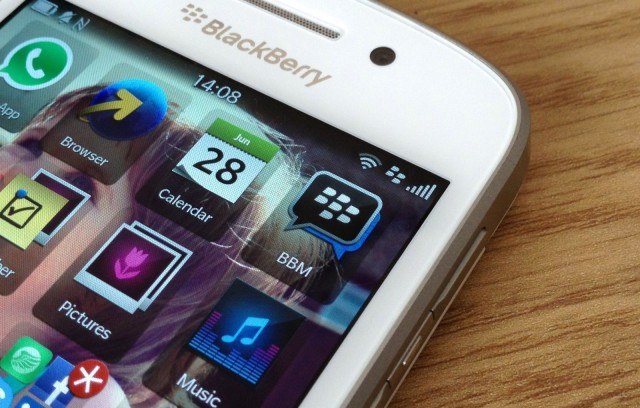
BlackBerry has confirmed that it will address BBM’s measly 6MB transfer limit in its next update. The company says it has “heard users loud and clear,” and it has vowed to allow the transfer of larger files over the popular instant messaging service.
![How The Galaxy S5 Stacks Up Against iPhone 5s, Xperia Z2, HTC One & More [Comparison] post-268136-image-27e6d3402f40b1fc2858ac929a4d98f8-jpg](https://www.cultofmac.com/wp-content/uploads/2014/02/post-268136-image-27e6d3402f40b1fc2858ac929a4d98f8.jpg)
Just as expected, Samsung unveiled its flagship Galaxy S5 at Mobile World Congress on Monday evening. In addition to fancy new features like a fingerprint scanner and heartbeat sensor, the handset boasts the latest Snapdragon 801 processor, a 1080p Super AMOLED display, and a 16-megapixel rear-facing camera with rich tone HDR, selective focus, and more.
But how does the Galaxy S5 compare to some of its competitors, like the iPhone 5s, the new Sony Xperia Z2, and its cousin, the Galaxy Note 3? We’ve put together a handy comparison chart below that makes it all clear — and may help you choose the best handset for you.
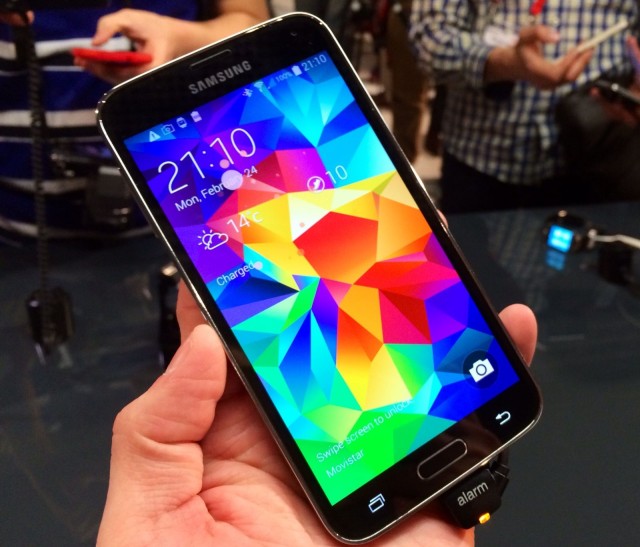
The Galaxy S5’s fingerprint scanner may be coming more than 7 months later than the iPhone’s, but it’s already going to be more useful to users. Not only will it allow them to unlock their device at the touch of a button, but Samsung’s going to allow third-party developers to integrate fingerprint scanning into their own applications, too.
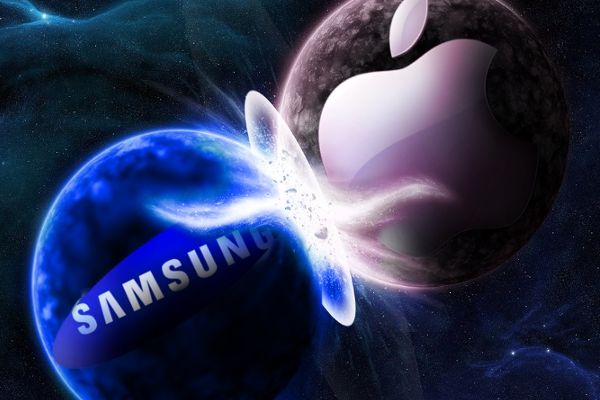
A South Korean antitrust watchdog has rejected Apple’s claims that Samsung’s counter-patent suit against the U.S. firm violates the country’s fair competition rules.
Apple lawyers claimed that Samsung’s litigation concerning its SEPs (standard-essential patents) for 3G wireless technology was an act designed to abuse its dominant position in the marketplace — amounting to a violation of fair competition rules.
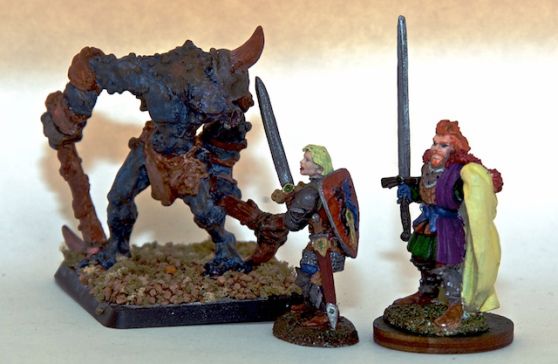
They may still be wrapped in an ongoing patent dispute, but Apple and Samsung have temporarily put aside their differences to tell the European Union that it should cut down on the ability of companies that license patents to win court rulings limiting product sales.
Apple and Samsung are just two of 19 companies and associations who put their names to the letter, which seeks to battle patent trolls who don’t manufacture actual products but instead rely entirely on license fees.
![Venture Kid Is Going To Rock Android & iOS Like It’s 1989 [Video] post-267600-image-0a71ef3e417046dac6733f36783bb2ff-jpg](https://www.cultofmac.com/wp-content/uploads/2014/02/post-267600-image-0a71ef3e417046dac6733f36783bb2ff.jpg)
For gamers who would rather relive the classic days of 2-D platformers, the forthcoming Android and iOS title Venture Kid looks a sight to behold.
With an obvious debt to the Mega Man series, and graphics straight out of the 8-bit era, Venture Kid isn’t a port of an old game but an entirely new one — albeit aiming for an old school, pixelated aesthetic from a time when your typical mobile phone was the size of a brick.

The Wall Street Journal reported today that an Android-powered smartwatch is coming from LG and Google. The Journal’s source said other companies may also be involved, and that the device is likely to be unveiled at Google I/O, Google’s developer conference, which is scheduled to begin June 25.
According to the report, the watch will be integrated with Google Now.
The report didn’t specify the N word, but this information reeks of a quasi-reference design product in line with the Nexus strategy. It’s easy to imagine all this as a Nexus-branded smartwatch with all the core attributes of the Nexus lines of phones and tablets. Let’s go ahead and call it the Nexus Smartwatch.
So what are these Nexus attributes when applied to a smartwatch?
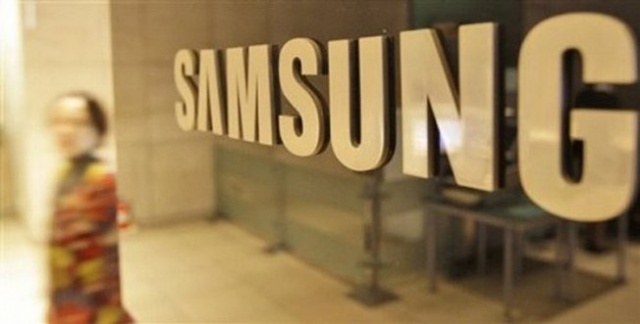
It’s one thing for Samsung to diss Apple in an ad campaign, but apparently another entirely for filmmakers to diss Samsung.
That’s according to a new report, stating that Samsung allegedly pressurized a Korean online newspaper to kill coverage of an anti-Samsung movie. The president of NewDaily Biz supposedly ordered editors to take down an article about the film Another Promise, which offers a fictionalized criticism of working conditions for people working in Samsung’s factories.
![Google Was Willing To Beat Facebook’s Offer For WhatsApp [Rumor] post-267350-image-9d90736a84162c436749b7cbbb0689da-jpg](https://www.cultofmac.com/wp-content/uploads/2014/02/post-267350-image-9d90736a84162c436749b7cbbb0689da.jpg)
Google was willing to trump Facebook’s $19 billion offer to buy mobile messaging service WhatsApp, new reports suggest.
While it is well known that Google was interested in acquiring WhatsApp, it was previously thought that the company was only willing to offer $10 billion. Not so, according to The Information, which claims to have spoken with three people involved in the negotiations between the two parties.